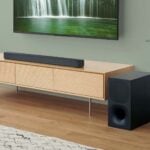Drew Wallner
Grip
- Joined
- Dec 24, 2003
- Messages
- 23
First time homeowner, just breaking the chains of apartment noise levels and getting into HT. Please bear with me if this is a terribly noob question but some searches didn't seem to turn anything up...
I will be mounting an LCD projector on the ceiling of an addition to the back of my house. The addition was done recently and all the wiring is in excellent shape. There is presently a ceiling fan I'll be removing near where I want my projector to go - so my first thought was "great, easy access to power, a great way to keep my AC line away from the video cables, how convenient!" however now I am having second thoughts.
Every other piece of nice electronic equipment I have, several computers, my receiver, our videogames, everything is plugged into a high quality surge protector or a surge protected UPS.
Shouldn't I be just as concerned about my projector?
Given the cost of lamps, I have this sinking fear about watching a film, a sudden rainstorm spooling up and either ZAP a groundstrike nearby causing a spike or perhaps worse the sometimes imperceptible brownouts caused by extreme weather or high load which UPS's seem to "sniff" but few lights even dim during - I'm guessing these could shorten lamp life as well.
How do other folks with ceiling mounted FP's handle power?
Thanks in advance!
I will be mounting an LCD projector on the ceiling of an addition to the back of my house. The addition was done recently and all the wiring is in excellent shape. There is presently a ceiling fan I'll be removing near where I want my projector to go - so my first thought was "great, easy access to power, a great way to keep my AC line away from the video cables, how convenient!" however now I am having second thoughts.
Every other piece of nice electronic equipment I have, several computers, my receiver, our videogames, everything is plugged into a high quality surge protector or a surge protected UPS.
Shouldn't I be just as concerned about my projector?
Given the cost of lamps, I have this sinking fear about watching a film, a sudden rainstorm spooling up and either ZAP a groundstrike nearby causing a spike or perhaps worse the sometimes imperceptible brownouts caused by extreme weather or high load which UPS's seem to "sniff" but few lights even dim during - I'm guessing these could shorten lamp life as well.
How do other folks with ceiling mounted FP's handle power?
Thanks in advance!





